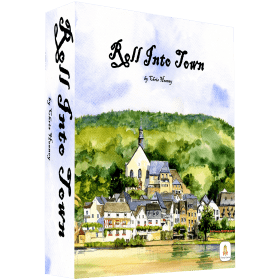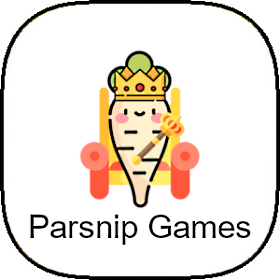rollintotown
 You are the new mayor and must help a town thrive in this roll-and-write game.
You are the new mayor and must help a town thrive in this roll-and-write game.
Each round, players will explore around their town, looking for resources or land features.
They can grow their town through buildings with special powers.
Players score from population, rivers, coastline, and buildings.
Žaidėjų skaičius: 1 - 8
Žaidimo trukmė: 35 mn
Sudėtingumas: 3 / 5
Žaisk rollintotown ir 1229 kitus žaidimus internetu.
Nereikia nieko parsisiųsti - žaiskite tiesiai iš savo interneto naršyklės.
Su jūsų draugais ir tūkstančiais žaidėjų iš viso pasaulio.
Nemokama.

Žaisk rollintotown ir 1229 kitus žaidimus internetu.
Nereikia nieko parsisiųsti - žaiskite tiesiai iš savo interneto naršyklės.
Su jūsų draugais ir tūkstančiais žaidėjų iš viso pasaulio.
Nemokama.

Taisyklių santrauka
Summary
Roll Into Town is a roll-and-write game about exploring a map, building income, and growing a town.
Setup
Each player takes a map with the Town Hall drawn in the middle. The Town Hall provides a Discover phase ability described later.
Each player starts with 0 food, 0 stone, and 2 wood. Players may have up to 9 of each resource at a time.
Gameplay
The game has 12 rounds, and each round has 4 phases: Discover, Construct, Gather, and Upkeep.
Each round, dice are rolled as shown on the player sheet: 5 dice in the first 6 rounds, 4 dice in the next 3 rounds, and 3 dice in the final 3 rounds.
All players use these dice results to take their turns. Player turns are simultaneous, and player choices have no effect on other players.
Discover
In this phase, players use the current dice results to draw map icons. The number of icons drawn each round are as shown on the player sheet: 3 icons in the first 3 rounds, 2 icons in the next 6 rounds, and 1 icon in the final 3 rounds.
Players can click the Town Hall to adjust a die by +/- 1. However, this ability can only be used once per die, and only 3 times per game. A die CANNOT be turned into a wild (6).
If players have built the Fountain, they can click it to choose dice over their normal round limit. However, this ability can only be used 3 times per game.
Discover phase icons
1) Farm: Gives 1 food in the Gather phase.
2) Mountain: Mines give 1 stone per adjacent Mountain (including diagonally) in the Gather phase. Multiple Mines can share the same Mountain.
3) Tree: Gives 1 wood if erased by an adjacent Woodcutter in the Gather phase. Forests of at least 2 orthogonally connected Trees grow during the Upkeep phase. These forests grow 1 new Tree for every 2 Trees in the forest.
4) River: May be drawn straight or as a corner. The first River icon must start from a map edge. Other River icons must continue the River. At game end, the player scores 1 point per River icon, or 2 points per River icon if the River connects opposite map edges (left and right, or top and bottom).
5) Coast: May be drawn with water on 2, 1, or 3 sides. If this causes an empty space to have water on 2 orthogonal sides, that space becomes Ocean. This effect repeats if needed. At game end, the player scores 1 point per Coast icon.
6) Wild: Can be used as any other Discover die icon.
Construct
In this phase, players use resources to construct buildings. They may construct any number of buildings as long as they have enough resources. Buildings can only be build on empty squares, except for the Harbour and Lighthouse as described below.
Some buildings are unique, which means each player can only construct them once.
Construct phase buildings
House (3 food, 2 stone): At game end, the player scores 2 points per House.
Mine (1 wood): Mines give 1 stone per adjacent Mountain (including diagonally) in the Gather phase. Multiple Mines can share the same Mountain.
Woodcutter (1 wood): May cut down all adjacent Trees in any direction (including diagonally) in the Gather phase. If the player uses this ability, all adjacent Trees to the selected Woodcutter give 1 Wood each and are erased.
Harbour (2 wood): Gives 1 food in the Gather phase. Must be built on an empty Coast.
Watermill (3 wood): Gives 1 food per Farm in the Gather phase. This ability can stack if the player has more than one Watermill. Each Watermill must be placed orthogonally beside (rather than in front of) the River.
Tavern (5 wood): At game end, the player scores 1 point per House adjacent to a Tavern in any direction (including diagonally). Each House can only count for one Tavern, however.
Fountain (5 stone): The player may activate the fountain to choose an extra die during the Discover phase. This ability can only be used 3 times per game. This building can only be built once.
Market (4 stone): Allows the player to use 2 identical resources as 1 of any other resource when building. This ability can be used any number of times, but only when constructing a building. This building can only be built once.
Lighthouse (3 stone): At game end, the player scores 1 point per Ocean and Coast square. The bottom of the Lighthouse must be Coast, or empty and adjacent to Coast in any direction. The top must be empty, Ocean, or Coast. Neither the top nor the bottom can contain a Harbour. The top and bottom may not change later, except the top may become an Ocean. This building can only be built once. This building cannot be rotated.
Cathedral (7 wood): At game end, the player scores 10 points. This building can only be built once. This building can be mirrored, but not rotated.
Gather
In this phase, players gain income:
Farm: Each Farm gives food equal to 1 plus the number of Watermills on the map. For example, with 2 Watermills each Farm gives 3 food.
Harbour: Each Harbour gives 1 food.
Mine: Each Mine gives 1 stone per adjacent Mountain. Multiple Mines can share the same Mountain.
Woodcutter: Each Woodcutter may be activated to erase all adjacent Trees in any direction, giving 1 Wood per Tree erased. Each player may activate all, some, or none of their Woodcutters.
Upkeep
In this phase, players must grow all forests they have. A forest consists of at least 2 Trees connected orthogonally.
For every 2 Trees in a forest, that forest grows 1 new Tree. For example, a forest with 7 Trees grows 3 new Trees. This growth amount is calculated before any forests grow, so connecting two forests does NOT produce more growth in the same round.
Tree growth may chain through new Trees and even through other existing forests. All that matters is that the new Tree is connected orthogonally to the selected forest, through a chain of other Trees.
Scoring
Each House scores 2 points.
Each Tavern scores 1 point per adjacent House in any direction, for a maximum of 8. Houses CANNOT be counted by multiple Taverns. Only one Tavern will score the point for a shared House.
Each River square scores 1 point. If the River connects opposite map edges (left and right, or top and bottom), each River square scores 2 points instead.
Each Coast square scores 1 point. It does not matter if the Coast has a Harbour.
The unique Lighthouse building scores 1 point per Ocean and Coast icon.
The unique Cathedral building scores 10 points.
End of Game
The game ends after 12 rounds are completed. The player with the most points wins.
If there is a tie, the player with the highest House score (NOT including Tavern bonuses) wins.
If there is still a tie, players share the victory.
Solo Scoring
When playing solo, see how high you can score:
< 51 points: Failed mayor.
51-60 points: Adequate mayor.
61-70 points: Good mayor.
71-80 points: Great mayor.
81+ points: Legendary mayor!

